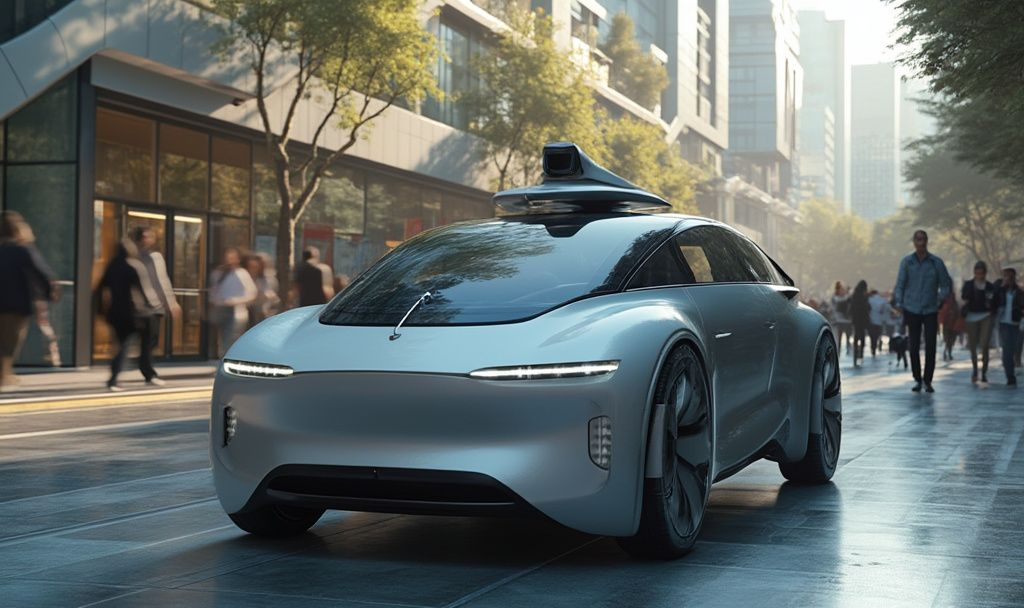Step into a world where cars drive themselves. Autonomous vehicles offer more than convenience; they promise transformative changes in safety, accessibility, and urban living. As we navigate the road ahead, discover how these innovations are reshaping futures and raising essential ethical and economic questions.

Imagine a world where you can step into your car, tell it your destination, and relax while it takes you there. This is the promise of autonomous vehicles, often referred to as self-driving or driverless cars. “Autonomous Vehicles: Navigating the Road Ahead” explores the future of these vehicles capable of driving themselves without human intervention. This subject captures the imagination of many, offering insights into how we might travel in the not-so-distant future.
Understanding Autonomous Vehicles
Autonomous vehicles use advanced technology, including sensors and artificial intelligence, to navigate roads and avoid obstacles without needing a human driver. They promise various benefits, such as increased safety and greater accessibility for individuals who cannot drive. A detailed exploration of these technologies, their capabilities, and limitations can be found in Britannica’s comprehensive overview of autonomous vehicles.
Despite the excitement, fully autonomous vehicles, classified as Level 5 autonomy, are not yet available to the public as of 2025. However, the industry is making significant strides, continuously working toward these vehicles’ real-world integration.
Why People Are Interested
The allure of self-driving cars extends beyond transportation convenience. It encapsulates ideas of safety improvements and changes in urban mobility and lifestyle. Many are particularly interested in understanding how autonomous vehicles might alter job markets, legal considerations, and everyday commuting patterns. If you’re curious about the latest advancements and regulations in the field, the National Highway Traffic Safety Administration provides valuable insights into safety and standards.
The conversation around autonomous vehicles is fueled by excitement about technological advancements and curiosity about unforeseen challenges. Many seek to grasp how these vehicles will be integrated into society, give rise to new ethical questions, and impact industries like logistics and insurance.
The Human and Economic Impact
Autonomous vehicles promise to revolutionize road safety, potentially reducing accidents by minimizing human error. This innovation is not only centered on safety but also on enhancing freedom for people unable to drive due to age or disability, broadening their mobility options. However, the transition to self-driving cars raises concerns including job displacement for professional drivers and new ethical dilemmas.
Economically, the sector is thriving with investments from various automakers and tech companies eager to lead in autonomous technology innovation. These developments are reshaping the automotive industry and introducing new opportunities and challenges in logistics and IT. For an overview of these changes, refer to the comprehensive resource from the University of Michigan.
Addressing Ethical and Policy Considerations
As autonomous vehicles inch closer to becoming commonplace, they bring critical ethical and policy issues to the forefront. These include determining liability in the event of a crash, managing privacy concerns related to data collection, and integrating autonomous vehicles with traditional human-driven cars. Governments and industry leaders are actively addressing these uncertainties through evolving regulations and guidelines.
The TWI Global article offers a deep dive into the ethical and regulatory frameworks developing around autonomous vehicles, assisting policymakers and researchers in creating balanced solutions. Addressing these issues is essential to ensuring that society can safely and effectively benefit from this transformative technology in the years to come.
As we drive toward a future where autonomous vehicles are a reality, the road ahead is filled with opportunities and challenges that will shape our world in significant ways. To stay updated on this evolving field, resources such as Georgia Institute of Technology’s Scaleup Lab provide valuable insights and ongoing updates on advancements in self-driving technology and transportation.
Frequently Asked Questions (FAQs)
What are autonomous vehicles?
Autonomous vehicles are self-driving cars that use sensors and artificial intelligence to navigate roads and avoid obstacles without human intervention.
Why are people interested in autonomous vehicles?
People are interested in autonomous vehicles for their potential to improve safety, accessibility, and change urban mobility, as well as their impact on job markets and legal considerations.
How do autonomous vehicles impact road safety?
Autonomous vehicles promise to improve road safety by minimizing human error, potentially reducing accidents and enhancing mobility options for those unable to drive.
What are the economic impacts of autonomous vehicles?
The economic impacts include reshaping the automotive industry with significant investments from automakers and tech companies, introducing new opportunities and challenges in logistics and IT.
What ethical considerations do autonomous vehicles raise?
Ethical considerations include liability in crashes, privacy concerns from data collection, and integration with traditional vehicles, which require evolving regulations and guidelines.
